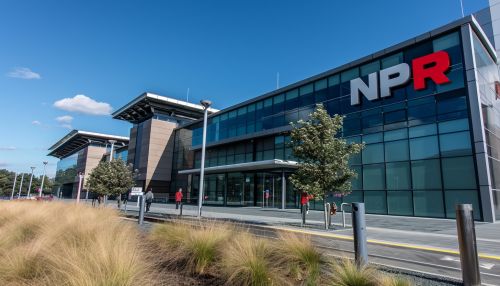National Public Radio
Overview
National Public Radio (NPR) is an American privately and publicly funded non-profit media organization headquartered in Washington, D.C. It serves as a national syndicator to a network of over 1,000 public radio stations in the United States.


History
NPR was created in 1970, following congressional passage of the Public Broadcasting Act of 1967. This act was signed into law by President Lyndon B. Johnson, and established the Corporation for Public Broadcasting, which also created the Public Broadcasting Service for television broadcasting.
Funding
NPR's revenue comes primarily from the fees it charges its member stations for programming and distribution costs. Other sources of revenue include corporate sponsorships, grants from the Corporation for Public Broadcasting, and listener contributions.
Programming
NPR produces and distributes news and cultural programming. Its flagship programs are two drive-time news broadcasts, Morning Edition and All Things Considered; both are carried by most NPR member stations, and are among the most popular radio programs in the country.
Member stations
NPR stations are frequently not-for-profit entities owned by institutions such as universities, school systems, and local community groups. They broadcast a mixture of NPR programs, content from American Public Media, the BBC, and programs produced by the stations themselves.
Controversies and criticisms
Over the years, NPR has been the subject of numerous controversies and criticisms, including accusations of bias, influence of donors, and disputes over the firing of journalists.
See Also
Public Radio International American Public Media Public Broadcasting Service
